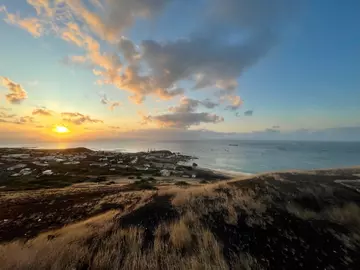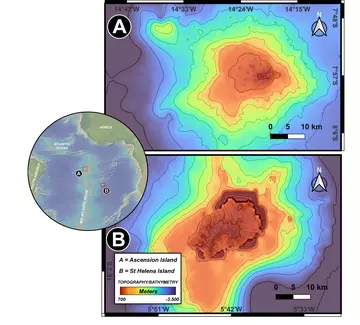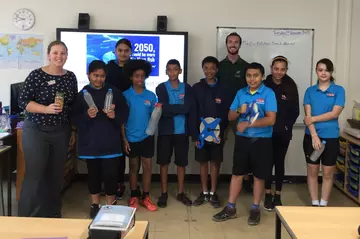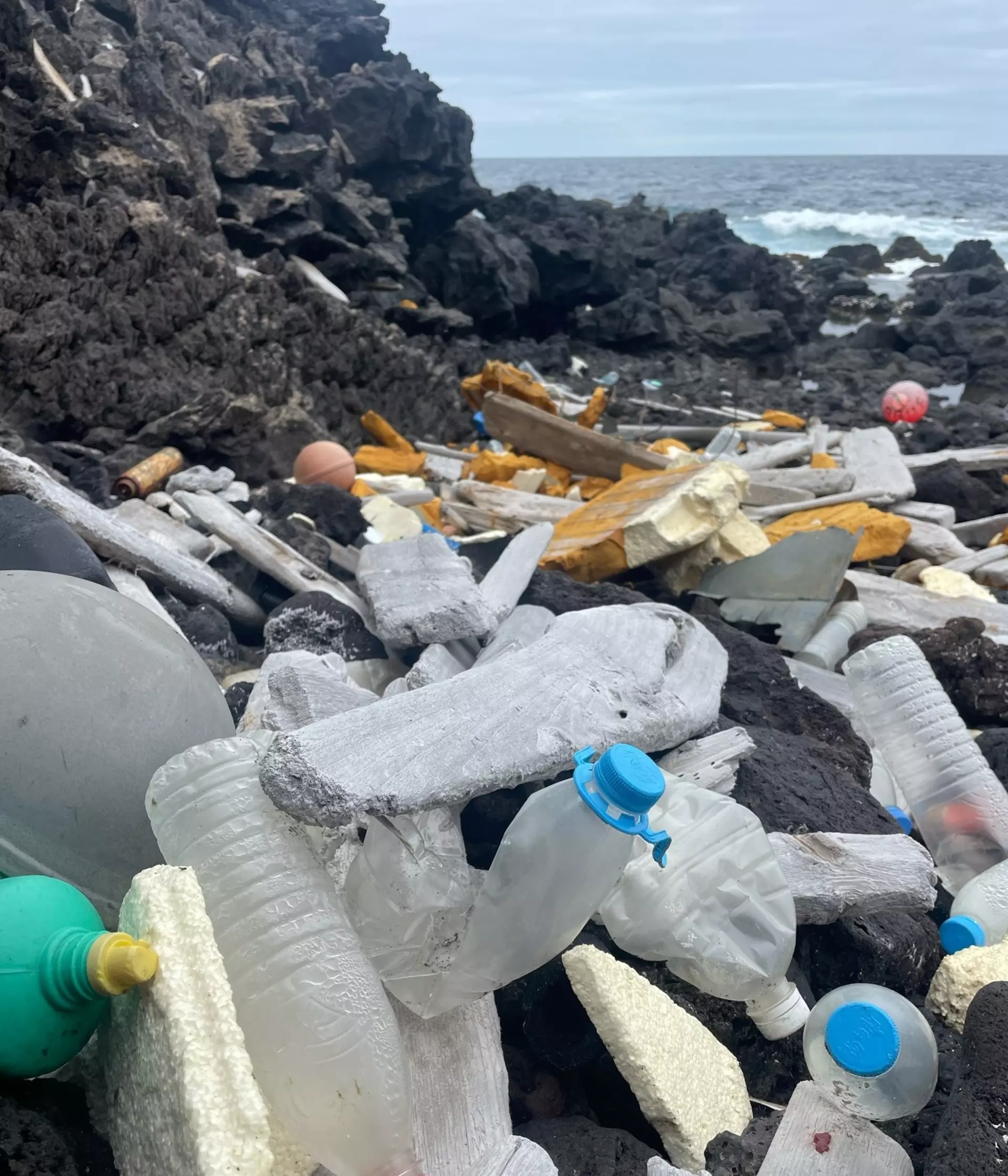
Shauna Young
Senior Marine Projects Manager
Dr Matthew Gollock
Aquatic Species and Policy Programme Lead
Professor Heather Koldewey
Lead, Bertarelli Foundation's Marine Science Programme
Since 2022, ZSL has been working in partnership with the UK Overseas Territories of Ascension and St Helena to reduce the impacts of plastic pollution on their incredible marine wildlife.
This collaborative project is working closely with the local communities to understand the use of plastic items and the drivers of plastic pollution in small island locations, and to co-develop locally appropriate solutions to restore a healthy ecosystem so that people and wildlife can thrive together.

What are the challenges?
Unfortunately, like many small island nations, Ascension and St Helena suffer the pervasive impacts of plastic pollution, both washing up on their shores from elsewhere and generated on-island. Further compounding the problem is the limited waste management infrastructure on both islands, preventing recycling opportunities.
Being as remote as they are, as shown in the map below, Ascension and St Helena must import the vast majority of their food and supplies by ship or air, with many items being packaged in single-use plastic – which after use is incinerated or sent to landfill.

What are the project aims?
At ZSL, we work to inspire, inform, and empower people to protect and restore wildlife. Together with our project partners and the local island communities, we are working to:
- Understand the impact of plastic pollution on wildlife, and develop, implement, test and evaluate appropriate mitigation strategies.
- Trial innovative solutions and interventions; and create conditions for islanders to reduce single-use plastic use.
- Improve associated waste management efficiency.

The combined waters of the remote islands of Ascension and St Helena cover 889,916 km2 and are home to an incredible array of wildlife, including endangered whale sharks, critically endangered hammerheads, turtle nesting populations, the charismatic Ascension land crab, and endemic seabirds found nowhere else on earth.
Project resources
The Whale shark comic book was produced by St Helena National Trust. It was created to educate children about the effects of plastic pollution, not just in St Helena but across the whole world. Download the comic book.
ZSL is committed to tackling plastic pollution
The project builds on previous knowledge and experience ZSL has gained through other projects, such as the #OneLess campaign, and our work to tackle the impacts of plastic pollution in the Chagos Archipelago. It takes a ‘systemic change’ approach to really understand how the current, unsustainable system of reliance on single-use plastic, combined with the mismanagement of plastic waste, can be shifted towards more sustainable and ocean-friendly practices, while benefitting both local communities and wildlife.
In support of this work, ZSL has partnered with Fauna & Flora to shape an equitable and inclusive UN Global Plastics Treaty, which supports global communities that are most vulnerable to the negative impacts of plastic pollution.
Project collaborators
- Shauna Young
- Surshti Patel
- Matthew Gollock
- Heather Koldewey
- Fiona Llewellyn
- Alice Chamberlain
Project partners
- Ascension Island Government
- Blue Marine Foundation
- Cape Town University
- Exeter University
- Nelson Mandela University
- St Helena National Trust
- St Helena Government
- Zoological Society of London
